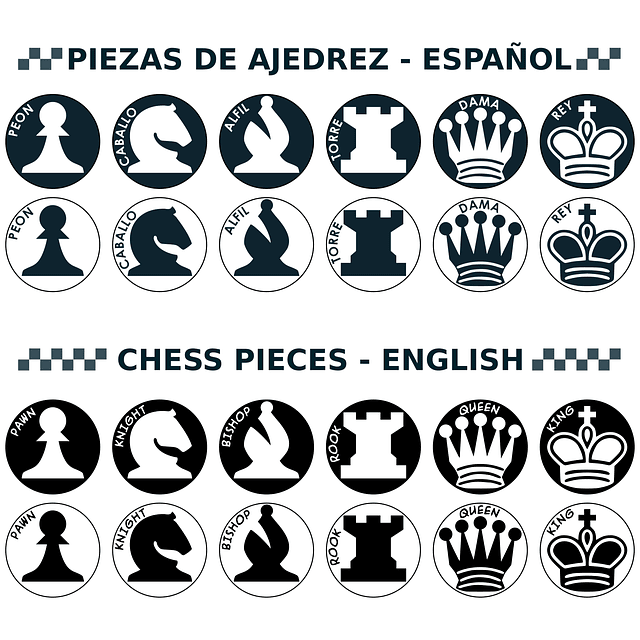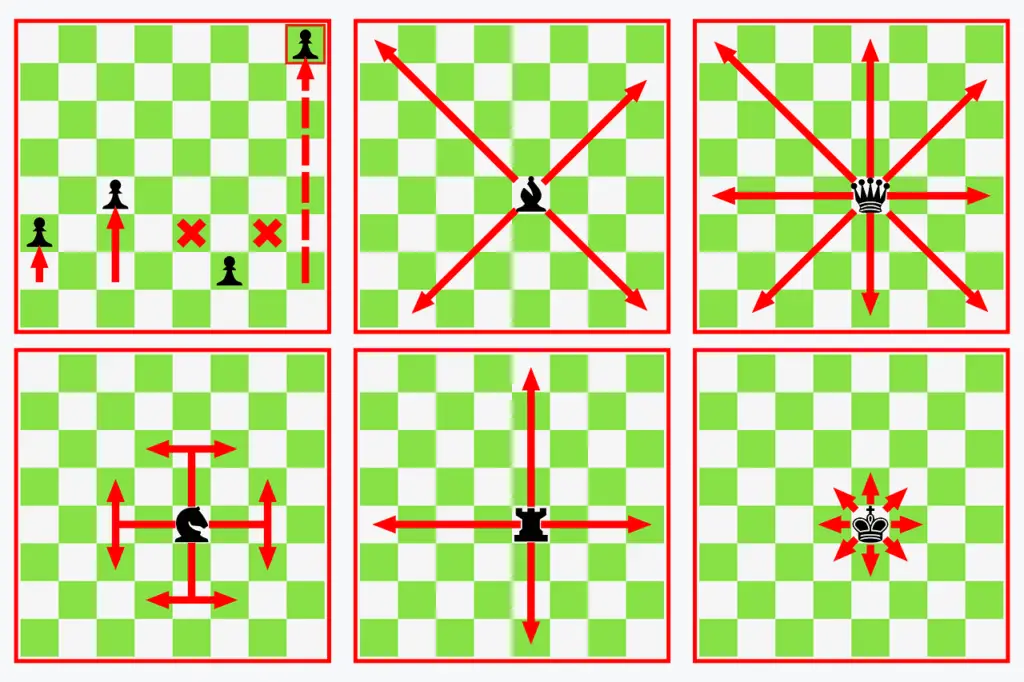Why is chess so hard to learn? Here are the facts
Chess is a hard game to learn due to its sheer number of pieces (16 for each player) that have their own unique movements. The openings that are too diverse and extensive, and there are too many options that the player has to choose from.
Learning chess is a hard and treacherous journey since the competition is high and massive. But even excluding the competition from the game itself, it also hosts unique quirks that make it harder to learn.
This article is not created for us to complain why this game is so complicated, it is something more positive actually. This is to pat ourselves in the back if we are having a rough time learning since we know that the game is “that hard”.
There are many reasons why chess is naturally a hard game to master, here are those reasons:
1.) There are so many pieces

Unlike many other famous board games like checkers, the sheer amount of pieces makes learning a little bit rough. There are a total of 16 units for one side and 32 counting both which is a massive number to control.
Just the visual aspect of looking into that quantity is enough to intimidate most aspirants.
2.) Each piece has unique movements

On top of so many pieces to learn there are six types of units that on their own warrant some time to learn. You have to incorporate all of these classes at the same time adding to the difficulty.
I recommend mastering the pieces one by one (even just having a grasp) where the rook should be first and the pawn as last.
3.) It has special in-game rules
Chess host a variety of in-game rules that makes it interesting but also quite challenging. Rules such as en passant, castling, pawn promotion are the concepts that may present these issues.
I recommend understanding this after absorbing the other piece’s difficulties since you need those to understand these ideas.
4.) There are conditions to achieve draws
A lot of board games can be characterized by their inability to host a draw (not always) but chess is not one of those. Conditions like a stalemate, perpetual check, or just a simple resignation add a layer of complexity to the equation.
This makes you mindful when these situations may occur since you don’t want to draw a winning position.
5.) Theoretical openings are so diverse
This I think is what overwhelms most beginners upon learning the roundabouts of chess. The opening theories (sequence of initial moves that hopes to achieve an advantage) are so large in quantity that it makes it harder to digest.
These ideas add more challenges to the already intricate nature of chess making it more daunting.
6.) Openings have become too extensive
Not only that there are too many openings to learn but they are so extensive that some even reach the middle game. This might be astonishing to the eyes of someone just starting since how could someone memorize that far.
Some even fall into the trap of immediately jumping into this ship which is always a bad idea (you should learn the endgame first).
7.) Middlegames are often played with uncertainty
So after the opening phase of the game, it’s now the middle game, what exactly is to be accomplished? The pattern and visual recognition necessary to formulate plans that comes with experience.
A beginner will obviously stumble upon the complexity of the position without acquiring those traits.
Learning the middlegame takes time, you will need a combination of many theoretical knowledge. In my experience reading a chess book helps a lot. You can check this guide if you are about to read you first chess book, it contain pointers.
8.) Things are harder to notice in the endgame
Some of you might think that since the endgame contains fewer pieces that it would be easier. Absolutely not, the spaces and tempos are so subtle at this phase of the game that only a few truly master this period.
One seemingly innocent move even in the eyes of a somewhat advanced player can be the losing one that throws the game.
Note: If you want to improve your endgame this article (will open in a new tab) is extremely helpful.
9.) Attacking is complicated
One of the most common mistakes inexperienced players tend to suffer from is forcing in premature attacks. What they don’t realize is attacks are really complicated enough to make it a problem for even some advanced players.
It takes a little bit of intuition, tactical ability, and calculating power to successfully mount an attack that only a few people have.
10.) Defending is even more complicated
So if attacking is hard what about defense? it actually has more issues than attacking itself. It usually requires you to play a cramped position with really limited options but high punishments.
This kind of pressure plus demanding qualities really make defending an element that is harder to master.
11.) There are lots of memorization to do
Take note that I don’t recommend anyone who is just starting to do a lot of memorization but I can’t deny its essentiality. There are just some critical positions that would occur often that warrants some remembering magic.
Maybe it’s a famous ending or an opening trap you want to avoid, memorization is hard to do.
12.) There are too many options to choose from
If you just leave the board and think of a move what crosses your mind? there are just too many options, right?
Don’t worry this is actually a normal psychological phenomenon known as paralysis by analysis, which literally paralyzes your decision-making if there are many things to choose from.
This is a mountain that you will have to cross at some point trust me that it is possible with enough time.
13.) There are so many things to learn (in general)
Chess even excluding the sheer amount of numbers of the pieces, is just naturally complex. The opening, middle game, endgame theories are just hard to absorb.
You could be spending years trying to familiarize all the concepts and still say that you don’t know enough.
14.) There is no clear way to evaluate the position
There has been a lifetime of a quest to find “the move” for every given position that we can say that this is the one. That is why opening theory has been created (and also chess engines) to tell us this move.
But both opening & engine moves ram each other all the time (different engines have different evaluations) which tells you the difficulty of evaluating positions.
15.) Unfamiliar positions are common
Moves can easily be structured if the player has encountered the position before, which can happen but not all the time. This means that most of the time you would have to come up with something unique that has not been tested.
You would have to swim uncharted territories where you’re bound to make mistakes.
16.) Studying should be in a progression
Learning chess is like learning math, you can’t solve the problems without learning the theories (formulas). And everything should be in progression where skipping steps would likely lead to confusion and wasting time.
This is why it is a long pursuit since most of the things are structured in a way that you need to learn in progression.
17.) The games are very long
Experience can teach a lot of things in chess which can be acquired by playing many games. The problem is, the games are very long. Saying that you need “experience” basically translates you need more patience.
The learning curve is much higher since you have lesser opportunities to absorb ideas in such a long format.
18.) Time controls can be stressful
Chess is played with a time control designated for a particular type of play. This added pressure and stress can make players rush their moves further damaging progress.
It takes a little bit of time to get used to playing with a clock and even longer to get used to time troubles.
19.) Opponents are rarely inspiring
There has been a stigma that’s lingering in the chess community lately called “chess elitism”. It’s basically a form of gatekeeping that prevents weaker players from participating on the same grounds as those with more experience.
This added demotivation makes this already hard game even harder, as beginners are more likely to give up.
20.) Pattern recognition comes from experience
Humans are creatures of patterns, we are actually pretty good at picking similar features in normal conditions. Chess is a little bit complex that it needs some experience to trigger this ability you just can’t get good right away.
This makes progress appear a little bit vague that you can make people frustrated even when it’s actually normal.
Final thoughts
Chess is definitely a challenging experience that someone can choose to master, which makes it very interesting. Challenges after all are what make our life beautiful where the rewards after the climb last for a really long time.
If you can only stick and keep pushing every day you will eliminate most of these issues in time. I hope you can, Sleep well and play chess.
